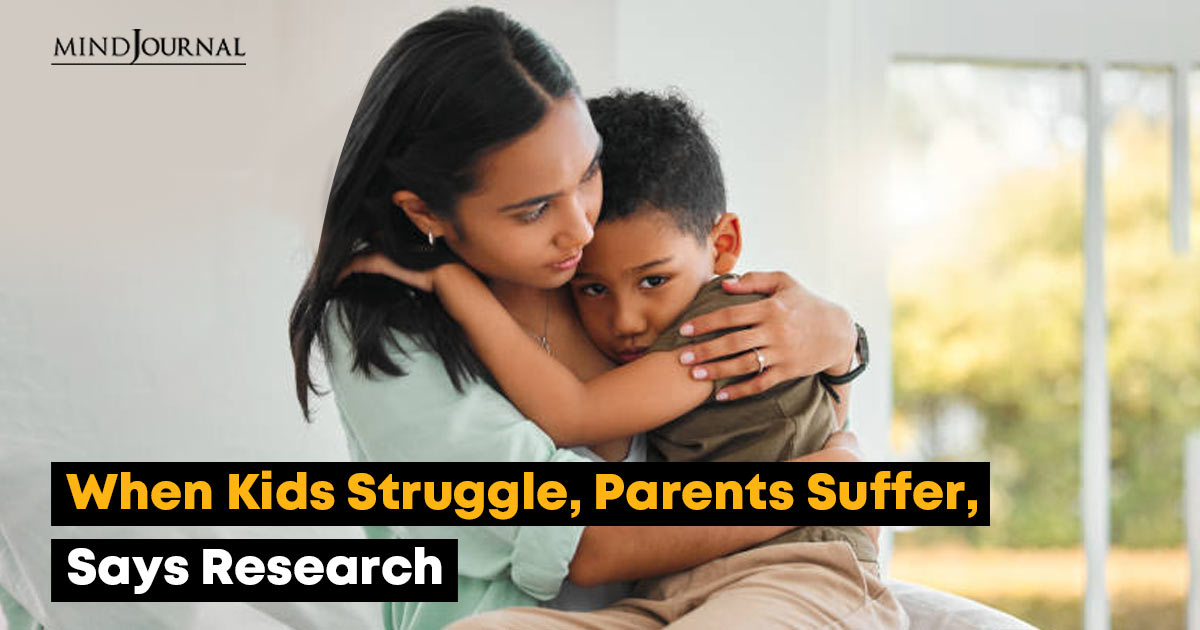The strain on parents, often primary caregivers responsible for their children’s health, has been worsened by a national shortage of mental health care providers and it has affected parental wellbeing too.
According to psychologists, researchers, and family advocates, the day-to-day challenges they face have resulted in a distinct health crisis of their own.
What Research Says About Parental Stress?
Recent data from the Centers for Disease Control and Prevention, the surgeon general’s office, and medical practitioners collectively highlight a concerning surge in children’s Mental health struggles in the United States.
Approximately 40% of parents with children under 18 express significant worry about potential anxiety or depression struggles in their children, as revealed by a January survey conducted by the Pew Research Center.

Researchers and specialists in pediatric mental health emphasize the incorporation of parents in evidence-based therapies designed to address a child’s mental well-being.
However, attention often falls short of adequately addressing the anxiety and stress experienced by adult caregivers.
For instance, parent-child interaction therapy focuses on coaching parents to manage their young child’s behavior, aiming to mitigate more critical future issues in the child. While beneficial for the child, this approach lacks direct support for the parental wellbeing.
Parental Wellbeing Gets Affected Due To Children’s Mental Health Struggles
In the wake of her teenage daughter’s suicide attempt and subsequent cycling through various emergency rooms and mental health programs over the last three years, Sarah Delarosa observed a decline in her own health.
Mini strokes and stomach bleeding became issues for the mother of four residing in Corpus Christi, Texas. The situation was compounded by her daughter’s deteriorating behavioral and mental health, leading Delarosa to miss work hours as a home health aide, resulting in a loss of crucial family-supporting income.
The unavailability of timely assistance was a source of hopelessness for Delarosa. She sought support for her 16-year-old daughter, Amanda, who has been diagnosed with various mental health challenges such as bipolar disorder, oppositional defiant disorder, and attention-deficit/hyperactivity disorder.
Amanda’s episodes of anger and self-destructive behavior, such as breaking light bulbs and using the shards to harm herself, added to the distress.
Delarosa finds herself frequently overwhelmed, and she has observed her youngest son displaying behavioral issues as well.
For almost 17 years, Anne Grady’s 20-year-old son, who has autism, severe mood disorder, developmental delays, and other related conditions, has remained on a Texan waiting list for comprehensive care.
Read more here: What Does Autism Look Like in Adults? Common Adult Autistic Traits
Residing in an Austin suburb, Grady faced an additional burden when she developed a salivary gland tumor and experienced temporary facial paralysis, compounding the mental health challenges of managing her son’s care.
Grady remarked, “Families find it mentally draining.” She expressed that the absence of sufficient care is not only detrimental to the children but also imposes a burden on their families.
According to Robin Gurwitch, a professor in psychiatry and behavioral sciences at Duke University, the crisis doesn’t solely affect children, but families too. They find themselves grappling with supporting their children within a system devoid of clear guidance.
A year ago, Brandon Masters, a middle school principal in San Antonio, experienced a stress-related rash on his arms and neck, which his doctor connected to his stress levels.
Danielle Martinez, a behavioral health specialist at Driscoll Children’s Hospital in Corpus Christi, recounted numerous instances of parents opening up about their feelings of isolation, inadequacy, parental wellbeing, and the urge to give up
Read more here: Surprising Ways Loneliness Impacts Our Health and Wellbeing
To address this, the hospital is in the process of establishing peer support groups to address parental stress as a genuine concern of family members caring for children under the hospital’s supervision, set to launch in the coming fall.









Leave a Reply
You must be logged in to post a comment.